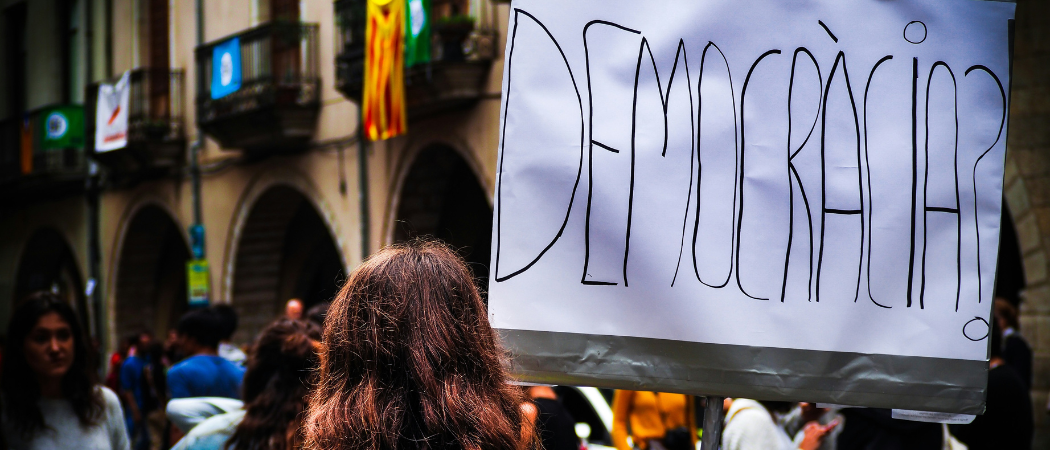From gender-based violence to digital excesses, the Commission is making threats to democracy a top research topic

Photo credits: Marc Sendra Martorell / Unsplash
The rise of authoritarian political movements worldwide is pushing the European Commission to reorganise funding priorities for research, with several new calls for proposals on threats to democracy set to feature in the last two years of Horizon Europe.
According to a draft 2026-27 work programme for Cluster 2, which aims to equip policymakers with tools to safeguard democracy and restore public trust in EU institutions, researchers will be asked to work on topics ranging from post-conflict democracy and reconstruction to electoral integrity in the digital context.
Research on democracy and governance has proved highly changeable in plans for the remainder of Horizon Europe. Earlier this year, the Commission cut three topics from the draft 2025 work programme, including understanding forms of local democracy in low-income and low-middle income countries, and how governments change the way they work and prepare the civil service for the future. These topics have now been restored in plans for 2026-27.
Meanwhile, research projects focused on countering and preventing radicalisation, extremism, hate speech and polarisation were allocated an additional €3.5 million in 2025.
The latest changes, for 2026-27, foresee new calls for research in a range of areas. One is the impact of EU support, civil society engagement and international cooperation in rebuilding regions that have known war and seen a decline in democratic governance, such as Ukraine. Another addresses the rights of minorities facing armed conflicts and autocratic regimes.
A further call seeks to explore the drivers of violence against women and LGBTIQ people whose increased participation in political activities coincides with the rise of politically motivated violence targeting public figures and gender-based violence. “When these two forms of violence intersect, they obstruct progress toward gender equality, reinforce traditional gender norms and power imbalances, and pose significant threats to democratic societies,” the documents reads.
Private sector vs democracy
The Commission will also ask for proposals examining the involvement of the private sector in democracy and its long-term effects on political inequalities and power shifts. This is an “increasingly complex and contentious relationship,” it says.
To address these threats, researchers will be tasked to focus on news outlets, whose independence, reliability and pluralism is being jeopardised by economic pressure, political influence and competition with social media.
“Social media forces them to compete for citizens’ attention with other forms of infotainment,” the draft plan says. “To compete in the digital age, European media need to embrace innovation,” it adds, meaning adopting new technologies such as transparent news-oriented algorithms and artificial intelligence to build dynamic paywalls and copyright revenues.
Related articles
- Extremism research in Horizon Europe gets €3.5M boost in 2025
- Research on democratic resilience gains ground in Horizon plans
The potential misuse of these technologies will, however, be monitored closely. Researchers will also be asked to assess how AI, deepfakes and other automated content generation tools can distort reality, spread false narratives and, ultimately, manipulate public opinion and electoral processes.
“The digital transformation of democratic processes has created new avenues for citizen engagement, but it also poses significant risks to the integrity of information and the electoral and other political processes,” the Commission writes. “As AI-generated content becomes increasingly sophisticated, the risk of disinformation and manipulation grows, threatening to erode the foundations of democratic decision-making.”
We think it is important to maintain a public record of how Horizon Europe evolves in successive rounds of drafting between the Commission and member states. This is a political process that, so far, the Commission refuses to make transparent. To this end, Science|Business is making a full history of the drafting process publicly available in our Horizon Papers database. You can share other draft work programmes anonymously at [email protected].





 A unique international forum for public research organisations and companies to connect their external engagement with strategic interests around their R&D system.
A unique international forum for public research organisations and companies to connect their external engagement with strategic interests around their R&D system.